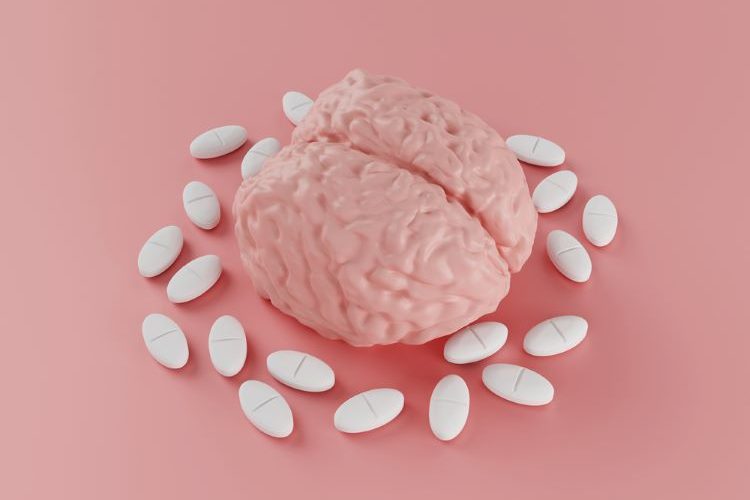Efficacy of novel drug proven in MDD study
Posted: 19 July 2023 | Catherine Eckford (European Pharmaceutical Review) | No comments yet
Significant results from a Phase II study in major depressive disorder (MDD) for a novel kappa opioid receptor (KOR) antagonist has prompted initiation of a Phase III programme.


Phase II study results for navacaprant (NMRA-140), a novel kappa opioid receptor (KOR) antagonist for major depressive disorder (MDD) demonstrated significant and clinically meaningful improvement in depression for participants.
The data “are compelling, particularly the significant improvements observed in both depressive and anhedonic symptoms,” stated Dr Roger S McIntyre, FRCPC, Professor of psychiatry and pharmacology, University of Toronto and Executive Director of the Brain and Cognition Discovery Foundation in Toronto, Canada.
“Anhedonia, the inability to experience pleasure or joy, impacts a majority of MDD patients… [which] often remains untreated by current antidepressants,” explained Dr McIntyre.
Key efficacy results in moderate-to-severe MDD (HAMD-17 total score ≥ 22 at baseline, n = 100) -prespecified statistical sensitivity analysis:
- 17-item Hamilton Rating Scale for Depression (HAMD-17) LSMD (p value): Week 4 change from baseline was 3.0 (p = 0.015). At Week 8, the change from baseline was reported as -2.8 (p = 0.037)
- Snaith-Hamilton Pleasure Scale (SHAPS) LSMD (p value) – Week 4 change from baseline was -2.4 (p = 0.071). Then at Week 8, the change from baseline was -4.8 (p = 0.001).
Navacaprant’s novel mechanism of action
Navacaprant, the oral 80mg once-daily treatment has a “novel mechanism of action that modulates multiple neurotransmitters, including dopamine, in reward processing pathways and may offer a differentiated monotherapy treatment option beyond the currently approved agents,” explained Dr Sanjay J Mathew, Vice Chair for research and Professor of psychiatry and behavioural sciences at Baylor College of Medicine.
The Phase II trial in MDD
In the Phase II clinical trial with navacaprant in MDD patients, the treatment was compared to placebo. The trial was originally initiated by BlackThorn Therapeutics, prior to its acquisition by Neumora Therapeutics.
When it first commenced, the clinical trial enrolled only mild-to-moderate MDD US patients. Neumora later amended the inclusion criteria to enrol patients with moderate-to-severe MDD. This patient population is one typically studied in MDD clinical trials.
Navacaprant demonstrated benefit in the total population, which included mildly depressed patients with baseline HAMD-17 scores as low as 14. Navacaprant demonstrated a statistically significant and clinically meaningful improvement in depression at Week 4 and continued to show improvements. However, it did not achieve statistical significance compared to placebo at Week 8. This was the primary endpoint of the original study designed by BlackThorn.
Exploring the potential of navacaprant
Based on positive data from the Phase II study, Neumora is continuing to develop the drug by initiating a Phase III clinical trial programme: KOASTAL-1, KOASTAL-2, and KOASTAL-3. These studies will evaluate efficacy and safety of navacaprant in adults with moderate-to-severe MDD who have a Montgomery–Åsberg Depression Rating Scale (MADRS) total score ≥ 25 at baseline.
The primary endpoint of these studies will be a change from baseline in MADRS total score at Week 6. The key secondary endpoints will be change from baseline on the Snaith-Hamilton Pleasure Scale (SHAPS) at Week 6, a measure of anhedonia.
KOASTAL-1 is expected to start in Q1 in 2023 and be conducted in the US.
Neumora expects to initiate the KOASTAL-2 study in Q4 in 2023. The study will be done in the US, Canada and Latin America.
In 2024, KOASTAL-3 study is anticipated to begin in Q1. It will be run in Europe, the US and the Asia Pacific region.
Related topics
Biopharmaceuticals, Clinical Development, Clinical Trials, Dosage, Drug Development, Drug Safety, Industry Insight, oral therapeutic candidate, Research & Development (R&D), Therapeutics









